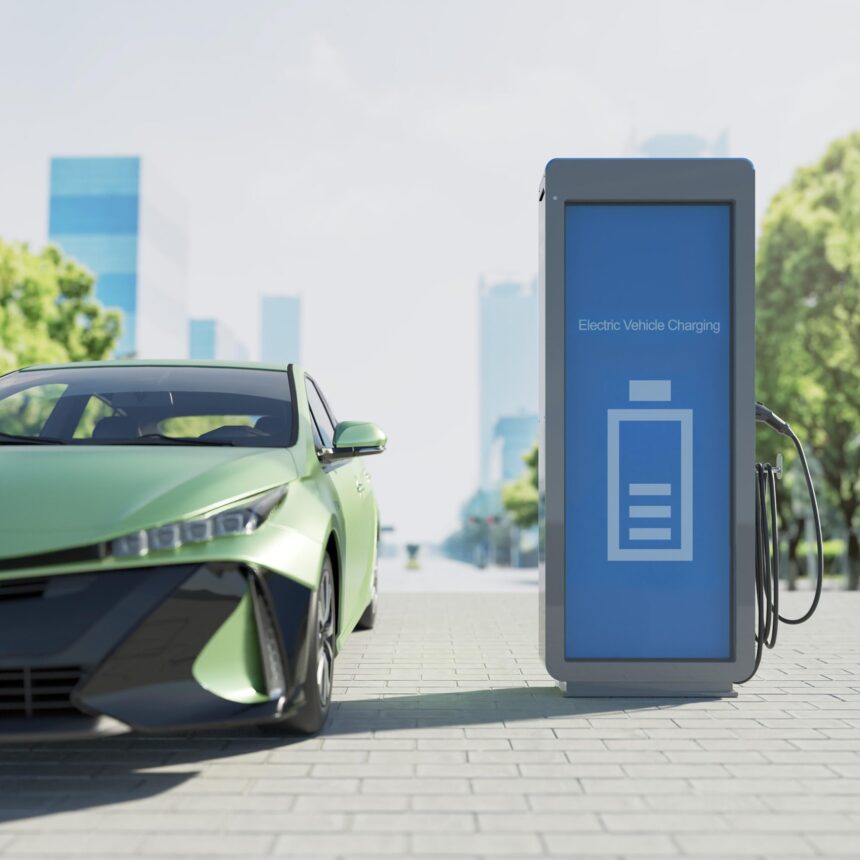Introduction
The future of transportation is electric, and electric vehicles (EVs) are rapidly becoming the preferred choice for consumers and automakers alike. However, despite the growing popularity of EVs, one significant barrier remains—battery technology. Current lithium-ion batteries, while effective, come with limitations such as slow charging times, degradation over time, and safety concerns due to flammable liquid electrolytes.
Now, a revolutionary technology is on the horizon: solid-state batteries. This new battery technology has the potential to transform EVs, making them safer, more efficient, and longer-lasting. Major automakers and battery manufacturers are investing billions in research and development to bring solid-state batteries to market. In this article, we’ll explore how solid-state batteries work, their benefits, challenges, and how they are set to redefine the EV industry.
What Are Solid-State Batteries?
Solid-state batteries differ from traditional lithium-ion batteries primarily in one crucial way: the electrolyte. In lithium-ion batteries, a liquid electrolyte enables the flow of lithium ions between the anode and cathode, generating power. However, this liquid electrolyte is volatile, flammable, and degrades over time, leading to reduced battery efficiency and potential safety risks.
Solid-state batteries replace the liquid electrolyte with a solid electrolyte, which eliminates many of these issues. This seemingly simple innovation results in batteries that are more energy-dense, longer-lasting, and significantly safer. By using materials like ceramics or sulfides, solid-state batteries can operate at higher voltages and withstand extreme conditions without the risk of explosion or fire.
Key Advantages of Solid-State Batteries in EVs
Solid-state batteries are not just an incremental improvement—they represent a massive leap in battery technology. Here are some key advantages:
- Higher Energy Density – These batteries can store more energy in a smaller space, leading to increased driving range for EVs. An EV equipped with a solid-state battery could potentially travel 500-600 miles on a single charge.
- Faster Charging – One of the biggest complaints about EVs today is the long charging time. Solid-state batteries have better ion conductivity, enabling ultra-fast charging—some estimates suggest charging times could be reduced to as little as 10-15 minutes.
- Improved Safety – The elimination of liquid electrolytes reduces the risk of thermal runaway, which can cause fires or explosions in traditional lithium-ion batteries. This makes EVs safer for drivers and passengers.
- Longer Lifespan – Lithium-ion batteries degrade over time, losing their capacity after a few thousand charge cycles. Solid-state batteries experience significantly less wear and tear, lasting much longer and reducing the need for costly replacements.
How Solid-State Batteries Will Revolutionize the EV Industry
The transition from lithium-ion to solid-state batteries could dramatically impact the EV industry in several ways:
- Overcoming Range Anxiety – Many potential EV buyers worry about running out of battery before finding a charging station. Solid-state batteries can extend EV ranges beyond what gasoline-powered cars offer, making long-distance travel more convenient.
- Shorter Charging Stops – Fast-charging capabilities mean drivers will spend less time at charging stations, making EVs more practical for daily use.
- Reduced Dependence on Scarce Materials – Traditional lithium-ion batteries rely on materials like cobalt, which are expensive and often sourced under unethical conditions. Solid-state batteries can use more abundant and sustainable materials.
- Lower Maintenance Costs – Since solid-state batteries degrade at a much slower rate, EV owners will face fewer battery replacements, reducing long-term costs.
Challenges in Mass Adoption of Solid-State Batteries
Despite their promising advantages, solid-state batteries face several challenges that must be overcome before they can replace lithium-ion technology in mainstream EVs.
- High Production Costs – Currently, solid-state batteries are expensive to manufacture due to the complexity of producing solid electrolytes at scale. This makes EVs equipped with solid-state batteries significantly more costly.
- Material Availability – Some materials used in solid-state batteries, such as lithium metal anodes, are in limited supply, which could create supply chain bottlenecks.
- Manufacturing Scalability – Large-scale production of solid-state batteries is still in its early stages, and automakers are working to refine the process to make it cost-effective.
- Durability Issues – While solid-state batteries theoretically have longer lifespans, they are still prone to issues like dendrite formation, which can reduce their efficiency over time.
Automakers Investing in Solid-State Battery Technology
Major automakers and tech companies recognize the potential of solid-state batteries and are pouring billions into their development. Some of the key players include:
- Toyota – Toyota has been one of the biggest advocates for solid-state batteries and aims to release a solid-state battery-powered EV by the mid-2020s.
- Volkswagen & QuantumScape – Volkswagen has partnered with QuantumScape, a leading startup in solid-state battery development, to commercialize the technology.
- BMW & Ford – Both automakers have invested in Solid Power, another company focused on bringing solid-state batteries to market.
- Nissan – Nissan has announced plans to launch EVs with solid-state batteries by 2028, highlighting its commitment to the technology.
How Solid-State Batteries Will Impact EV Prices
One of the biggest questions is whether solid-state batteries will make EVs more affordable or drive up their costs. Initially, EVs with solid-state batteries may be more expensive due to high manufacturing costs. However, as production scales up and technology improves, prices are expected to decrease.
Additionally, because solid-state batteries last longer and require less maintenance, they could ultimately make EV ownership more cost-effective in the long run. Once economies of scale are achieved, solid-state technology could make EVs more accessible to the average consumer.
Environmental Benefits of Solid-State Batteries
Solid-state batteries also have significant environmental benefits:
- Reduced Need for Rare Earth Metals – Many solid-state designs reduce or eliminate the need for materials like cobalt and nickel, which are mined in environmentally damaging ways.
- Lower Carbon Footprint – The manufacturing process for solid-state batteries is more energy-efficient, leading to fewer carbon emissions.
- Longer Life Means Less Waste – With fewer battery replacements needed over an EV’s lifetime, there will be less electronic waste.
When Will Solid-State Batteries Become Mainstream?
The widespread adoption of solid-state batteries is still a few years away, but progress is being made. Experts predict that early models featuring solid-state batteries will begin appearing in EVs around 2025-2028, with full-scale commercialization likely by 2030. As research continues and production methods improve, we will see these batteries becoming the new industry standard.
Conclusion
Solid-state batteries are poised to change the EV landscape forever. By offering higher energy density, faster charging, improved safety, and longer lifespan, they address many of the key challenges facing current lithium-ion batteries. While obstacles remain, the continued investment by major automakers and tech firms suggests that the transition to solid-state is inevitable.
Over the next decade, we will witness a major shift in battery technology that will make EVs more efficient, reliable, and accessible than ever before. The future of electric mobility is bright, and solid-state batteries are leading the charge.
FAQs
1. How do solid-state batteries differ from lithium-ion batteries?
Solid-state batteries use a solid electrolyte instead of a liquid one, making them safer, more energy-dense, and longer-lasting.
2. Are any EVs currently using solid-state batteries?
Not yet, but companies like Toyota, BMW, and Volkswagen are actively working on prototypes, with production models expected in the coming years.
3. Will solid-state batteries reduce EV charging time?
Yes, solid-state batteries have better conductivity, which allows for significantly faster charging compared to lithium-ion batteries.
4. Why are solid-state batteries not widely available yet?
High manufacturing costs, material availability, and scalability issues are the main barriers preventing mass adoption.
5. When will solid-state battery EVs become mainstream?
Experts predict widespread adoption between 2028 and 2030 as production processes improve and costs decrease.






